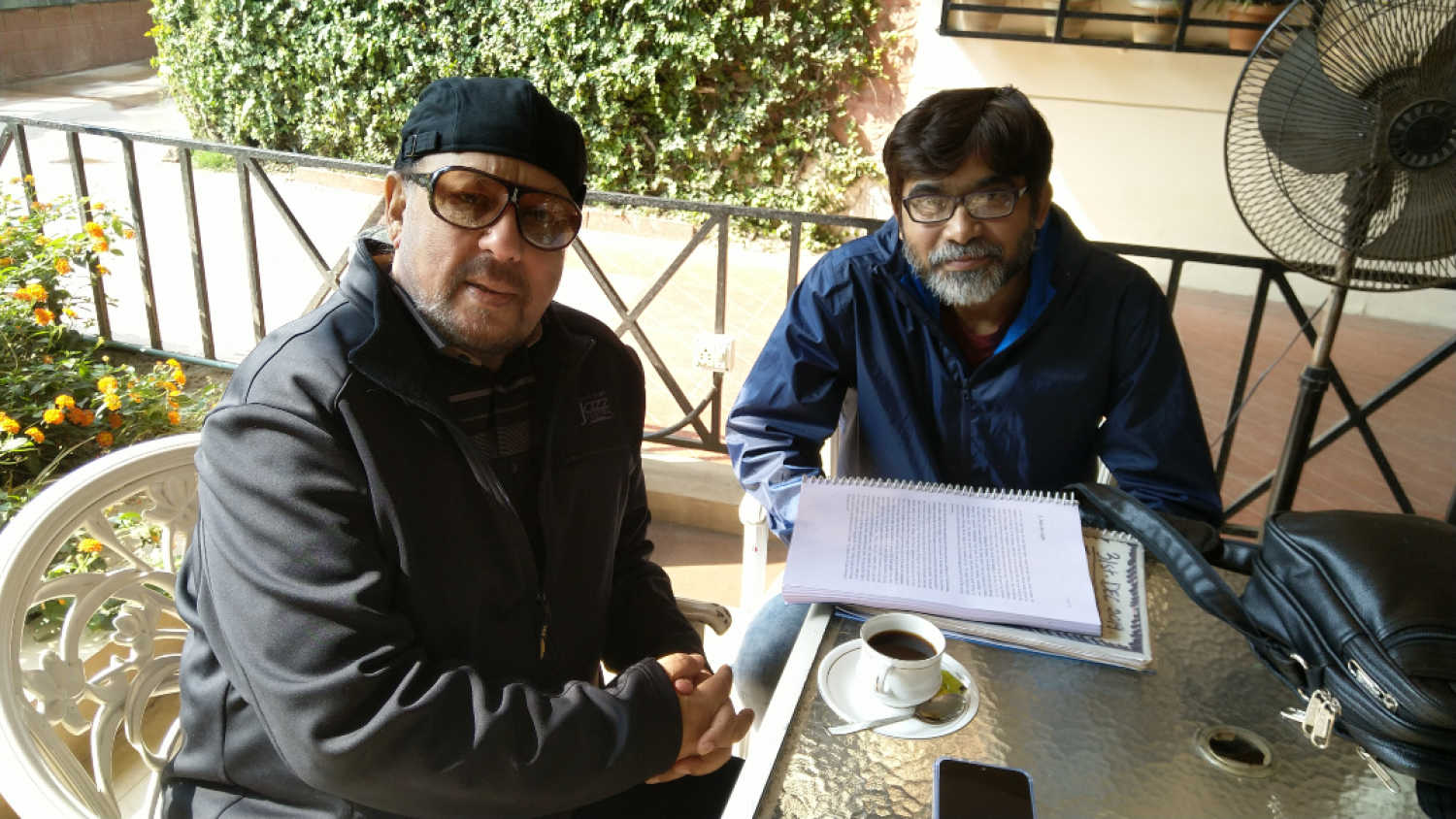The author opened up about his journey putting together the biography of the multifaceted musical legend.
Louiz Banks’s perspective on life and success is fascinating, says Ashis Ghatak
Mumbai - 18 Feb 2021 16:44 IST
Updated : 19:29 IST


Sonal Pandya
Ashis Ghatak’s latest book, Louiz Banks: A Symphony of Love, arrives at a momentous occasion. The release of the book coincides with the 80th birthday of the legendary musician and composer — 11 February. The biography, published by Rupa Publications, is a labour of love that was assembled over four to five years.
Over email, Ghatak answered questions about his motivation to pen a book on Banks, the subjects he tackled, and what he hopes to accomplish with the biography. The book is more than just a journey into Banks's career, it delves into the musician’s first musical inclination and his steady rise to become the godfather of Indian jazz.
Excerpts below:
As you said in the prologue, the idea to write the biography came up after seeing a video interview of Louiz Banks. What perspectives of his music, life and career were you hoping to uncover and focus on when you first started writing the book?
His music, life and career are interconnected. Two things stood out: His unflinching love for jazz and his passion to disseminate it to every corner of the country and thus be the flagbearer of the Indian jazz movement.
Secondly, he has inherent goodness with which he never compromised. His perspective towards life and success and the unwavering pursuit of his passion notwithstanding the monetary lows he had to go through in this pursuit is fascinating.
The writing process took you nearly four-five years. Were you able to capture everything that you had set out at the start?
I could mostly cover what I had initially thought of. But the lack of records available with regard to the deeply neglected domain of the advertising industry, documentation wise, deterred me from going deeper. The same can be said of the time when the International Jazz Yatra used to happen. I could not find enough material.

How did you outline the book, and who were the people besides Banks that you decided you had to speak to for the biography?
I needed to find certain stalwarts of the time who could put me on the proper trajectory. For the Darjeeling part, two people helped me immensely. Austen Plant, a senior to Louis and a person who had an encyclopaedic knowledge about the music of Darjeeling at that time. Unfortunately passed away just a few months back. The second was a senior journalist Peter J Karthak, who also passed away last year. He was the member of the band that Louiz mentored, The Hillians. For the Calcutta days, the living legend Nondon Bagchi was the one I had in mind and he gave great accounts. For the advertising part, I had to meet the great Alyque Padamsee and Prahlad Kakkar. For the jazz and fusion part, the list was pretty big, starting from the great Braz Gonsalves to Ranjit Barot, Shiva Mani to Shankar Mahadevan, Karl Peters to Sheldon D'Silva, and many more.
How did your interest in music first arise, and when did you first learn about Louiz Banks?
I first learnt of Louiz Banks when Pop Time used to be shown on Doordarshan. I used to see it regularly. I then came in contact with him during an RD Burman tribute show organised by an RD Burman foundation named Euphony in Calcutta of which I am a part.
Book excerpt: How a meeting with RD Burman brought Louiz Banks to Mumbai
What was the inspiration behind naming the chapters after song names?
I had this idea to underline the basic theme of each chapter. Into the Light speaks of his birth, Doors of Desire speaks of the time when he wanted to explore the unknown in order to discover the possibilities of jazz, Momentum is the concluding chapter because that is the number with which he generally ends his fusion shows.
What do you hope that both serious and casual music fans will find out about Louiz Banks and his journey?
The book will give serious music fans a chance to relive the past or gain an understanding of the time when jazz music and fusion music evolved. Louiz's immense contribution to the popularization of this seemingly alien genre of Indian music will definitely inspire them to carry forward the endeavour that this great maestro has been undertaking.
For casual music fans, well, there are many anecdotes of the maestro's life and times, which are fascinating. However, Louiz's oeuvre, be it the great piano pieces in RD Burman's music or advertising jingles, was never meant for casual music lovers. Because he believes in the intellectual insights of music and not just the thrills and frills that a casual music lover might look out for.


